Recebemos agora por e-mail as respostas de Bill German sobre os Stones e mais particularmente a respeito de seu livro Under Their Thumb, que está ganhando versão nacional e que já pode ser encomendado pela internet em várias lojas brasileiras. Primeiro fizemos algumas questões ao autor e logo a seguir ele responde às perguntas dos leitores.
Stones Planet Brazil – A realidade dos Stones é muito diferente daquela imaginada pelos fãs. Considerando a tua experiência com a banda, o que confirma ou desmente as lendas em torno do grupo?
Bill Geman – A grande surpresa para mim convivendo com os Stones foi o estilo de vida deles, como eles são normais atualmente. Obviamente eu li todas as histórias selvagens sobre eles nos anos 1970 e assisti a filmes como CS Blues. Mas no começo dos anos 1980 eles eram caras normais, com esposas, namoradas e filhos pequenos. Eles viajaram muito por todo lado e havia alguns “amigos estranhos, mas eles eram basicamente caras decentes quando viveram e trabalharam em Nova York.
SPB – Musicalmente qual foi o momento mais mágico de sua experiência com os Stones?
Bill German – Musicalmente falando existiram vários momentos mágicos para mim… Normalmente em situações bastante privadas. Eu amei alguns dos concertos deles em arenas ou estádios, mas os momentos mais bacanas foram na cozinha da casa do Ronnie quando ele e Keith fizeram uma jam acústica tocando coisas dos Beatles e de Buddy Holly. Ou então quando Keith, Ronnie e Charlie estavam em estúdio fazendo jam por diversão, sem pressão para vender discos ou ingressos e sem preocupações com os críticos ou a mídia.
SPB – Mick e Keith não estiveram no tributo recente a Ian Stewart. Como você viu essa ausência?
Bill Geman – Eu acho que realmente teria sido bom se os dois tivessem comparecido. Mas eu acho que eles são caras ocupados. Eu não vou especular sobre as razões de cada um deles, e eu não posso entrar na cabeça deles. Talvez tenham sentido que a homenagem de 1986 (no 100 Club, que está entre os meus momentos musicais favoritos) tenha sido suficiente. Obviamente por questões de relações públicas ambos deveriam ir ou ambos teriam de faltar. Não teria sido uma situação boa se um deles tivesse ido e o outro não. Eu diria até que eles conversaram e combinaram de não ir. Talvez tenha sido legal a ausência deles, porque o foco ficou maior sobre a homenagem ao Stu.
SPB – Você teve de cortar bastante o livro. Há muitas histórias que ficaram de fora. Talvez possa lançar um segundo livro? Poderia contar alguma das histórias que não foram usadas?
Bill German – Eu tive de cortar um monte de coisa de Under Their Thumb, mas apenas por questão de espaço. A maior parte das coisas que deixei de fora tinha mais a ver com a minha vida pessoal do que com os Stones. Por exemplo, eu tive histórias com meu melhor amigo, que era um cantor. Em 1982 eu convenci Andrew Loog Oldham a ir ver o show da banda dele e eles assinaram contrato de gerenciamento de carreira. Era uma coisa totalmente à parte dos Stones. Eu conheci Andrew quando eu tinha 19 anos. Em 1986 eu levei meu amigo para a festa de aniversário do Ronnie. Meu amigo ficou constrangido ao interromper uma jam entre Ronnie e Mick Jones por estar cantando muito alto. Esta história tem relação com os Stones, mas achei que era mais relacionada ao meu amigo. Há um monte dessas histórias loucas que talvez possa colocar em outro livro.
SPB – Foi muito complicado escrever Under Their Thumb?
Bill German – Foi complicado porque eu tinha histórias demais para contar e tinha de decidir quais usar. Também foi difícil escrever sobre algumas das minhas desilusões. Outra parte difícil foi saber que algumas pessoas podem não estar felizes comigo por eu ter escrito a verdade.
Luciano Teles, Rio de Janeiro – Você acredita que hoje em dia outro fã conseguiria ter o mesmo acesso que você teve aos Stones?
Bill German – Não, eu não acho que o que eu fiz com a Stones poderia ser feito novamente hoje. Há pessoas demais a cercá-los agora, especialmente em turnê. Pessoas de negócios, seguranças, etc. Quando eu estava perto deles, era tudo mais casual. Mick, Keith e Ronnie viviam em Nova York, como pessoas normais. E por mais estranho que pareça, eu acho que eles precisavam de alguns amigos na época. Eles estavam um pouco solitários.
Leandro Siqueira, Rio de Janeiro – Há algum momento que você gostaria que se repetisse, que adoraria repetir?
Bill German – Se eu pudesse repetir algum momento com os Stones poderiam ser aqueles momentos musicais, como assistir a eles fazerem jam na cozinha do Ronnie ou tocarem blues em um pequeno clube noturno com Clapton, Beck e Townshend.
Nelio Rodrigues, Rio de Janeiro – Você mantem contato com os Stones?
Bill German – Eu sei que é difícil para um fã entender, mas enquanto eu estava escrevendo Under Their Thumb, eu tive que me separar dos Stones para que eu pudesse pensar sobre as minhas experiências de forma honesta e imparcial. Eu não falei com qualquer dos Stones pessoalmente por alguns anos. Mas, ocasionalmente, vejo pessoas que estão muito próximas a eles e eu envio o meu abraço. E um dos familiares do Keith me disse que todos nós deveríamos ficar juntos para jantar em breve. Então, nós vamos ver se isso acontece.
Tamara Guo (Blue Lena), Pittsburgh – USA – Algum dos Stones leu o seu livro?
Bill German – O único para quem eu mandei o livro foi Keith, mas eu ainda não ouvi nada sobre ele ter lido. Como você sabe, Keith não é o tipo de cara para pegar o telefone ou enviar um e-mail ou mensagem de texto. Algumas pessoas que estão perto do Keith me disseram que ele achou o livro ok. Às vezes eu acho que ele está feliz com o livro (uma vez que ele sai tão bem nele) e às vezes eu acho que ele ficou chateado, pois eu falo sobre coisas que ele poderia ter preferido manter em sigilo. Finalmente, meu objetivo era escrever um livro que milhares de fãs dos Stones gostassem e não um livro para que quatro ou cinco Stones gostassem.
Manuela Pierro, França – Quem escreveu Jumpin’ Jack Flash e o que você pensa sobre a música?
Bill German – Keith diz que ele escreveu JJF e que era sobre um jardineiro. Eu vou acreditar nele. Brincadeiras à parte, eu não tento especular sobre o que as letras dos Stones – ou as letras de qualquer um – querem dizer. Como qualquer grande peça de arte, as músicas dos Stones podem ser interpretadas de muitas maneiras pelas diferentes pessoas que as ouvem. O trabalho de um artista é muitas vezes apenas provocar para fazer as pessoas pensarem e não para fornecer respostas.
Álvaro, Rio de Janeiro – Qual dos Stones foi mais difícil de lidar? Você diz que o Mick ficou insuportável nos anos 1980.
Bill German – Sim, Mick foi muito difícil de lidar, por vezes, nos anos 1980. Mas ele fez algumas coisas boas para mim, também. Eu tenho um capítulo no livro sobre Mick chamado “um bando de Caras Legais”, porque é assim que Keith e Ronnie o definem. “Um bom punhado de caras”. Devido à sua personalidade, seu humor pode mudar tão depressa do bom ao desagradável. Mas acho que muitas das atitudes do Mick têm a ver com negócios. Ele pode ser bom quando ele precisa ser bom e ser mau quando ele precisa ser mau. Devemos também lembrar que Mick tem mais demanda em seu tempo do que Keith ou os outros, porque ele é mais famoso. O que eu quero dizer é, se você perguntar para uma velhinha na rua sobre um Rolling Stone, ela vai lembrar do Mick. A propósito, como você pode ler em Under Their Thumb, Charlie também foi difícil para mim, pois ele estava sempre tão tímido e isso é realmente uma das partes engraçadas do livro.
Rolando, Portimão – Portugal – O rock and roll seria o mesmo sem os Rolling Stones?
Bill German – Não, o rock ‘n roll não seria o mesmo sem os Stones. Eles contribuíram com tantas coisas para o rock ‘n’roll. Antes dos Stones, as bandas usavam uniformes. Os homens não podiam ter cabelos longos. Certos tópicos (como sexo e drogas), não podiam ser discutidos em canções. As bandas não usavam seu próprio equipamento de som nos shows. As bandas não tinham patrocínio. (Não estou dizendo que todas as idéias dos Stones eram boas!). Os Stones foram os primeiros a fazer muitas coisas para o rock ‘n’roll, e houve centenas de bandas que foram influenciadas por eles nos últimos 49 anos.
Rolando, Portimão – Portugal – Como é a relação entre Mick e Keith? Apenas negócios?
Bill German – Lamento ter de dizer isso, mas acho que acho que relação entre Mick e Keith é praticamente apenas uma parceria de negócios, pelo menos nos últimos 25 anos ou mais. Eles não passam muito tempo juntos como amigos. Mas por outro lado, eles são como irmãos, que nunca podem ser totalmente separados. Eles sempre estarão um metido na vida do outro. Ame ou odeie.
Júlia Cavalcante, São Paulo – Eu gostaria de saber o que você queria destacar sobre os Stones quando escreveu o livro. Alguns livros são sobre grandes escândalos, alguns são sobre vidas pessoais, outros livros botam depoimentos de pessoas que estão próximas a eles, e outros livros relatam fatos obscuros e desconhecidos. Os Rolling Stones têm uma longa história, que parte dela você pretendeu destacar?
Bill German – Um dos temas do livro era capturar os Stones como seres humanos, porque é assim que eu os vi. Mas o livro também captura um período que não está escrito em outros livros: O momento em que parecia que as pedras poderiam quebrar-se (meados de 1980) e, em seguida, em 1989, quando eles voltaram a ficar juntos para as mais bem sucedidas turnês de sua carreira. Alguns poderiam dizer que foi por dinheiro, alguns poderiam dizer que era para o legado dos Rolling Stones e alguns poderiam dizer que foi porque eles amam a música. Durante todos os altos e baixos, o livro revela muitos momentos obscuros, desconhecidos e fatos bem-humorados sobre a banda.
Danielle, Porto Alegre – Você poderia nos dizer como era a rotina dos Stones?
Bill German – A banda passou por muitas fases diferentes durante o meu tempo em que estive em torno deles. É difícil descrever um dia de rotina para eles. Durante as sessões de Dirty Work, Mick e Keith raramente se viam. Mick ia para o estúdio por volta de 7 ou 8 horas da noite e saía à meia-noite, momento em que Keith e Ronnie estavam chegando. Keith e Ronnie ficavam no estúdio até amanhecer. Mas, durante as sessões de Steel Wheels, Mick e Keith trabalharam um pouco mais próximos. Durante a turnê desse ano (1989), a rotina normalmente foi assim: Mick fazia jogging no começo da manhã, e em seguida havia reunião com todos os homens de negócios, enquanto Keith ainda estava dormindo. Mas, às três horas todos se reuniam no interior do hotel. Era quando eles rumavam para o estádio para fazer uma verificação de som. Mick e Keith, então, conversavam sobre as canções que tocariam no show daquela noite. Keith me disse uma vez que o mais pacífico momento entre eles era quando o show começava.
Victor, Recife – Como você analisa o papel de Bill Wyman nos Stones na última década dele com a banda, 1981-1991?
Bill German – O papel de Bill Wyman nos Stones foi importante até o último show (1990) e sessões de gravação (1991). A sua sessão ritmica com o Charlie foi a melhor de sempre do rock and roll. Acho que Bill está muito orgulhoso do seu trabalho com os Rolling Stones, mas ele achou que já era o suficiente para ele daquele negócio de viajar de avião. Ele sempre foi muito agradável durante os anos em que convivi com os Stones, mesmo quando me encontrei com ele novamente, no verão de 2002. Mas eu não fui muito próximo a ele, como eu era a Keith e Ronnie, porque ele morava longe.
TO READ ALL ANSWERS IN ENGLISH, PLEASE, CLICK HERE.





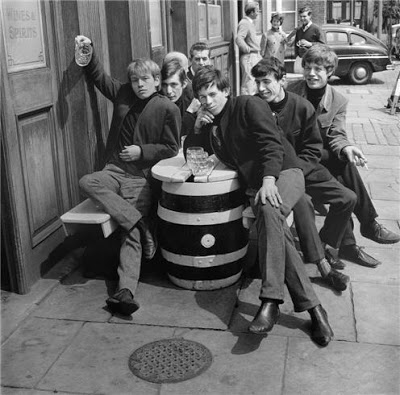


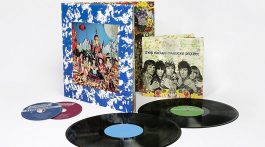


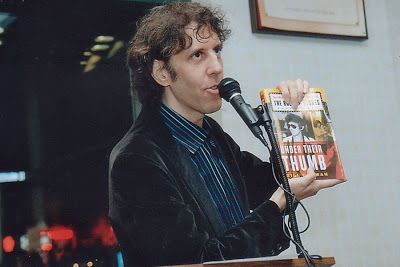


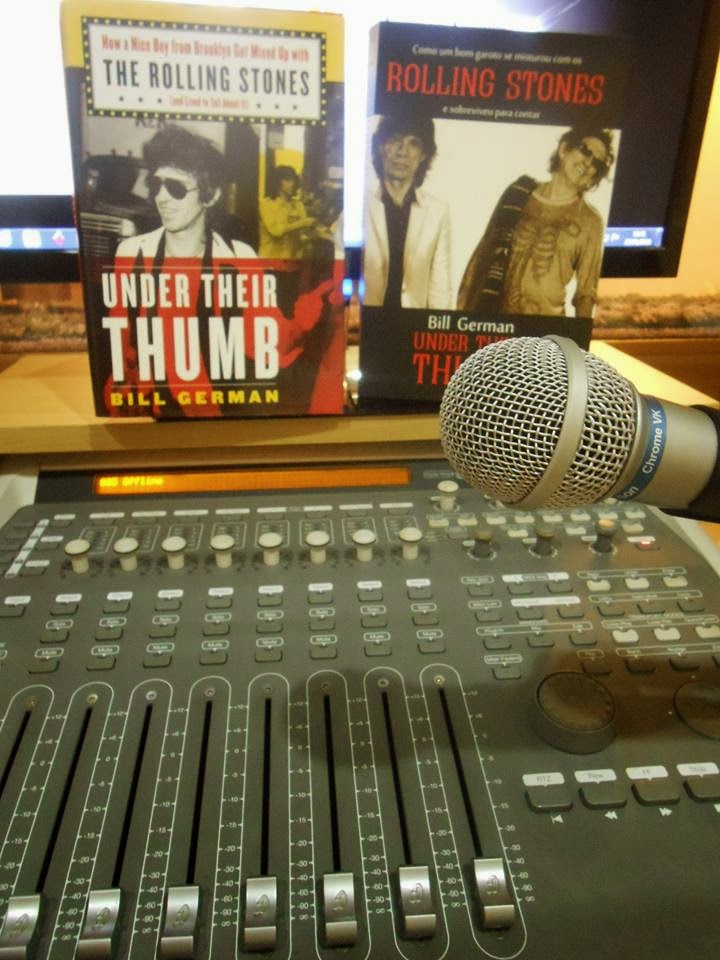
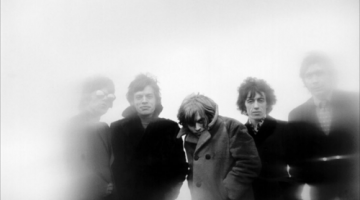
Show de Bola. Realmente o Bill é um cara fora de série.
Ficou muito bom! E as perguntas do pessoal foram bem legais!
E um passsarinho me contou que vamos ter uma surpresa bem legal no blog neste fim de semana…..
eita passarinho bem informado esse.
🙂
Stones Planet Brazil – The real like of the Stones is much different from what the fans imagine. To
which extent the things that you experience with them ruined your fantasies
about the band or confirmed them?
Bill German – The biggest surprise for me regarding the Stones' lifestyles was how
normal they actually were. Obviously, I'd read all the wild stories about
them in the 1970s and had seen films like "CS Blues," etc. But by the time I
got to know them in the early and mid 1980s, they were just regular guys, with
wives/girlfriends and young kids. They may have traveled around a lot and had
some "strange" friends, but they were basically decent guys who lived and
worked in New York.
SPB – Which was the most magical moment of your experience with the Stones in terms
of music?
Bill German – Musically speaking, there were a lot of magical moments for me,
usually in very private situations. So, although I may have loved some of
their arena and stadium concerts, the moments I truly cherish include sitting
around Ronnie's kitchen or basement when he and Keith were jamming on acoustic
guitars, playing Beatles and Buddy Holly songs. Or being in the studio when
Keith and Ronnie and Charlie were just jamming for the fun of it. No
pressure, no thoughts about selling records/tickets, no worries about critics
or the media.
SPB – Mick Jagger and Keith Richards did not participate in the recent tribute to
Ian Stewart. What do you think about the absence of the Glimmer Twins?
Bill German – I think it really would have been nice if they both could have been
there. But I guess they are busy guys. I won't speculate on why each of them
couldn't make it, and I can't get into their heads about it. Maybe they felt
that it was enough to do the tribute to Stu in 1986 (at the 100 Club in
London, also one of my favorite musical moments). Obviously, for public
relations reasons, they either both had to be there or they both had to skip
it. It would not have been a good situation if one came and the other didn't.
(I would assume they even checked with each other.) In the end, maybe it was
a good thing they both couldn't come. By not having Mick and Keith there, the
focus was more on Stu.
SPB – Much of the material you had for Under Their Thumb could not be published. Do
you consider releasing a second volume of the book with this missing stories?
Can you tell us one of this stories?
Bill German – I had to cut a lot out of "Under Their Thumb," but only for space
reasons. Everything I cut out had more to do with my own personal stories
than with the Stones. For instance, I had some stories about my best friend,
who was a singer. In 1982, I convinced Andrew Oldham to come see his band
play, and Andrew signed them to a management contract. So, completely apart
from the Stones, I got to know Andrew Oldham when I was 19 years old. And
then, in 1986, I brought my friend to Ronnie's birthday party, where he
embarrassed himself by interrupting a jam session between Ronnie and Mick
Jones (from Foreigner) and singing too loud. These were stories that were
related to the Stones, but seemed to be more about my friend. I can probably
do another book of all these crazy types of stories.
SPB – How difficult was it to write Under Their Thumb?
Bill German – It was very difficult to write "Under Their Thumb" because I had
too many stories to tell. I had to decide which ones were important for this
book and which ones were not. It was also difficult for me to write about
some of my disappointments. Another hard part was knowing that some people
might not be happy with me writing the truth.
Luciano Gomes, Rio de Janeiro. Do you believe that today another person could have the opportunity to be
close to the band and follow them as you did?
Bill German – No, I don't think that what I did with the Stones could be done
again today. There are just too many people that surround them now,
especially on tour. Business people, bodyguards, etc. When I got to know
them, everything was more casual. Mick, Keith, and Ronnie were hanging around
New York just like regular guys. And as strange as it sounds, I think they
needed some friends at that time. They were a little lonely, and unsure about
what was going to happen with the Stones.
Leandro Siqueira, São Gonçalo – Rio de Janeiro. If you could live again some experiencie with Stones, what would it be?
Bill German – If I could relive any of the moments I spent with the Stones, it
would be those great musical moments, like watching them jam in the studio or
jam in Ronnie's kitchen or playing blues songs at a small nightclub with
Clapton, Beck, and Townshend.
Nelio Rodrigues, Rio de Janeiro (author of the books Os Rolling Stones no Brasil and Sexo, Drogas e Rolling Stones)
Do you still keep in touch with the guys?
Bill German – I know it's hard for a fan to understand, but while I was writing
"Under Their Thumb," I had to separate myself from the Stones, so that I could
think about my experiences honestly and impartially. I haven't spoken with
any of the Stones in person for a few years. But I occasionally see people
who are very close to them and I send my regards. And one of Keith's
relatives is saying that we should all get together for dinner soon. So we'll
see if that happens
Tamara Guo (Blue Lena), Pittsburgh – USA
Did you ever hear from Keith or anyone else in the band who has read your
book, if so, what was their response to it?
Bill German – The only one I sent the book to was Keith, but I haven't yet heard
from him about it. As you know, Keith is not the kind of guy to pick up the
phone or to send an e-mail or text message. Some people who are close to
Keith have told me that he is okay with the book. Sometimes I think he'd be
happy about the book (since he comes off so well in it) and sometimes I think
he'd be upset (since I talk about things he might have preferred be kept
quiet). Ultimately, my goal was to write a book that thousands of Stones fans
would enjoy, not a book that four or five Stones would enjoy!
Manuela Pierro, França
Who composed the lyric of Jumpin´ Jack Flash? Which is the meaning of the song for you?
Bill German – If Keith says he wrote "Jumpin' Jack Flash" about his gardener, then
I will believe him! Kidding aside, I try not to speculate about what the
Stones' lyrics — or anyone's lyrics — are about. Like any great art, Stones
songs can be interpreted in many different ways by the people who hear them.
An artist's job sometimes is just to tease you and to get you thinking, not to
provide all the answers.
Alvaro, Rio de Janeiro
Of all the members of the band, who was the hardest to deal with? Do you agree with Keith when he said that Mick became very hard to deal with in the
1980s?
Bill German – Yes, Mick was pretty hard to deal with at times in the 1980s. But he
did some nice things for me, too. I have a chapter in the book about Mick
called "A Nice Bunch of Guys," because that's what Keith and Ronnie would call
him. "A nice bunch of guys." Because his personality could change so quickly
from nice to nasty. But I think a lot of Mick's attitude has to do with
business. He can be nice when he needs to be nice, and mean when he needs to
be mean. We also must remember that Mick has more demands on his time than
Keith or the others, because he is more famous. (What I mean is, if you ask
some old lady on the street to name one Rolling Stone, she'll name Mick.) By
the way, as you can read in "Under Their Thumb," Charlie was also hard for me
to deal with, but not because he was ever mean — it was because he was so
shy. (It's actually one of the funny parts of the book.)
Rolando Rebelo, Portimão – Portugal
Keith said that we have the moon, the sun and the Rolling Stones! But how
would be the world with the moon, the sun and without the Rolling Stones?
Would Rock´n Roll be the same?
Bill German – No, rock 'n' roll would not be the same without the Stones. They
contributed so many things to rock 'n' roll that people take for granted
today. Before the Stones, bands all wore uniforms. Men could not have long
hair. Certain topics (such as sex and drugs) could not be discussed in songs.
Bands did not use their own sound equipment at concerts. Bands did not have
sponsorship deals. (I'm not saying all of the Stones' ideas were good ones!)
The Stones were the first to do so many things for rock 'n' roll, and there
have been hundreds of bands who have been influenced by them in the past 49
years.
Rolando Rebelo, Portimão – Portugal
Based on your experience with them, Mick and Keith's relationship is only business related or is there is friendship between them?
Bill German – I am sorry to say that I think Mick and Keith's relationship is
pretty much just a business partnership now (and for the past 25 years or so).
They do not spend time together like friends. But in another way, they are
like brothers, who can never be fully separated. They will always be in each
other's lives. Love or hate.
Júlia Cavalcante, São Paulo
I'd like to know what you wanted to highlight about the Stones when you wrote the book. Some books are about great scandals, some are about their personal lives, other books even include testimonials of people who are close to them,
and other books report obscure and unknown facts. The Rolling Stones have a very long history, which aspect of the band did you intend to highlight?
Bill German – One of the themes of the book was to capture the Stones as just
regular human beings, because that is how I saw them. But the book also
captures a time period that is not written about in other books: The time when
it looked like the Stones might break up (mid-1980s), and then, in 1989, when
they came back together for the most successful tours of their career. (Some
might say it was for money, some might say it was for the legacy of the
Rolling Stones, and some might say it was because they love the music.)
Throughout all the ups and downs, the book reveals MANY obscure, unknown, and
humorous facts about the band.
Danielle Todeschini, Porto Alegre – Rio Grande do Sul
Bill, could you tell us a little about how was the band routine during the time you were close to them?
Bill German – The band went through so many different phases during my time
around them that it is hard to describe a routine day for them. During the
"Dirty Work" sessions, Mick and Keith rarely saw each other. Mick would go
into the studio around 7 or 8 o'clock at night and leave around midnight, just
as Keith and Ronnie were showing up. Keith and Ronnie would stay until
morning. But during the "Steel Wheels" sessions, Mick and Keith worked a
little closer together. During the tour that year (1989), the routine usually
went like this: Mick would be up early in the morning, jogging and then
meeting with all the business people, while Keith was still sleeping. But at
3 o'clock, everyone would gather inside the hotel and they would leave for the
stadium to do a sound check. Mick and Keith would then argue about what songs
to do at the concert that night. Keith once told me that the most peaceful
time for him was once the concert started!
Victor Serak, Recife – Pernambuco
"How do you analyse Bill Wyman's role in the band in his last decade "81-91 period" ?
Bill German – Bill Wyman's role in the Stones was always
important, up until the last concert (1990) and recording sessions (1991) he
did with them. His and Charlie's rhythm section was the best ever in rock 'n'
roll. I think Bill is very proud of his work with the Stones, but he just felt
he had enough of the business and "politics" and airplane travel that goes
with being a Stone. He was always very nice to me during my years around the
Stones (and even when I met up with him again in 2002), but I didn't get as
close to him as I did to Keith and Ronnie because he lived so far away.
A minha foi respondida, fuck yeah
Mas a resposta dele sobre minha pergunta foi realmente muito boa, é mesmo dificil encontrar livros que retratem os Stones como simplesmente pessoas
e mais ainda dos que falam do momento em que a agua quase furou essas pedras
ele respondeu a todas as perguntas. se alguma tiver ficado de fora foi pq eu esqueci de enviar.
🙂
É que é emocionante, um escritor responder uma pergunta minha, e com uma resposta tão bem elaborada, rs
hahaha… posso imaginar, Júlia.
Que bom que gostou.
Agora eu vou ter que comprar esse livro, hahaha
Mas parece ser um livro ótimo